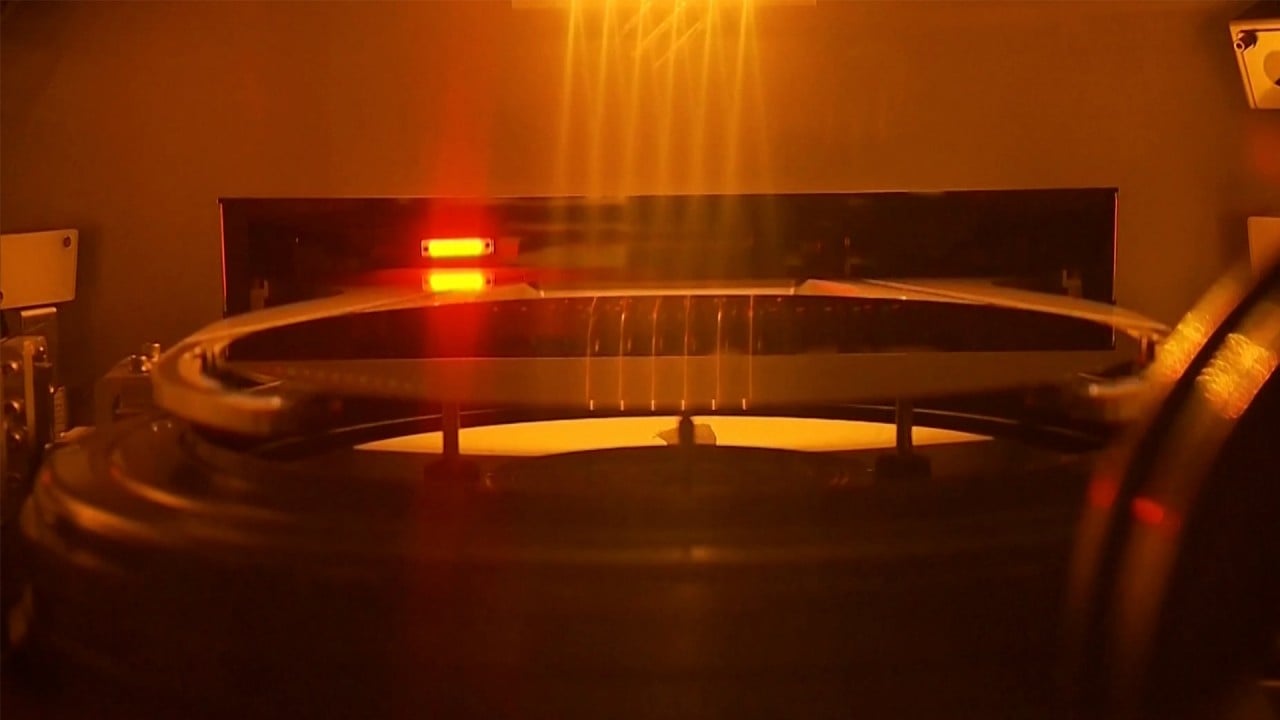
Joe Biden signs order to boost US biomanufacturing and compete with China
- The move seeks to reduce reliance on China for medicines and chemicals, an issue that has US national security and intelligence officials particularly concerned
- Biden is also pushing for a government-backed ‘cancer moonshot’, with the aim of halving death rates from the disease in the next 25 years
US President Joe Biden has signed an executive order laying out a strategy to bolster domestic biomanufacturing and reduce reliance on China for new medicines, chemicals and other products.
Biden signed the order Monday morning before giving a speech in Boston, an address deliberately set to echo John F. Kennedy’s famous 1962 “moonshot speech” in which he called for landing an American on the lunar surface – something achieved in 1969.
This time, Biden is pushing for government-backed efforts to coordinate and fund a multilayered fight against cancer, with the goal of halving cancer death rates in the next 25 years.
The White House will also hold a summit September 14 to discuss the biotech initiative and announce new investments in domestic research, development and production capabilities, according to a statement.
While the US has one of the world’s strongest biotechnology industries, some hi-tech production has migrated abroad. US national security and intelligence officials are particularly concerned about reliance on China’s advanced biomanufacturing infrastructure.
The National Biotechnology and Biomanufacturing Initiative will aim to create new jobs, strengthen the supply chain and lower prices, according to the White House statement. Looking beyond healthcare, the US will aim to advance biomanufacturing in agriculture, energy and other industries.
No ‘advanced tech’ factories in China for US firms getting Chips Act money
“Global industry is on the cusp of an industrial revolution powered by biotechnology,” the White House said. The country has “relied too heavily on foreign materials and bioproduction, and our past offshoring of critical industries, including biotechnology, threatens our ability to access materials like important chemicals and active pharmaceutical ingredients”.
Covid-19 created a sense of urgency within the administration around developing a clear, consistent industrial strategy, according to people familiar with the matter who asked not to be identified as the details are not public. Fast development and production of messenger RNA vaccines are an example of successful domestic investment, the people said.
The order contains the outlines of how the US should develop a trained, diverse workforce capable of using naturally occurring processes to create bio-based products and materials.
The Biden administration plans to support biomanufacturing infrastructure, though it is not yet clear how much funding there is to back the executive order.
Two weeks ago, Biden signed an executive order to boost domestic semiconductor manufacturing that is also part of the administration’s drive to shift the balance of US competition with China.
In May, China’s National Development and Reform Commission released a five-year plan for bioeconomic development, which described efforts to accelerate new technologies and spur growth in healthcare, agriculture and fuel.
As tensions mount between the US and China, the Biden administration has looked for ways to curb investment in China’s industries.
Additional reporting by Reuters


